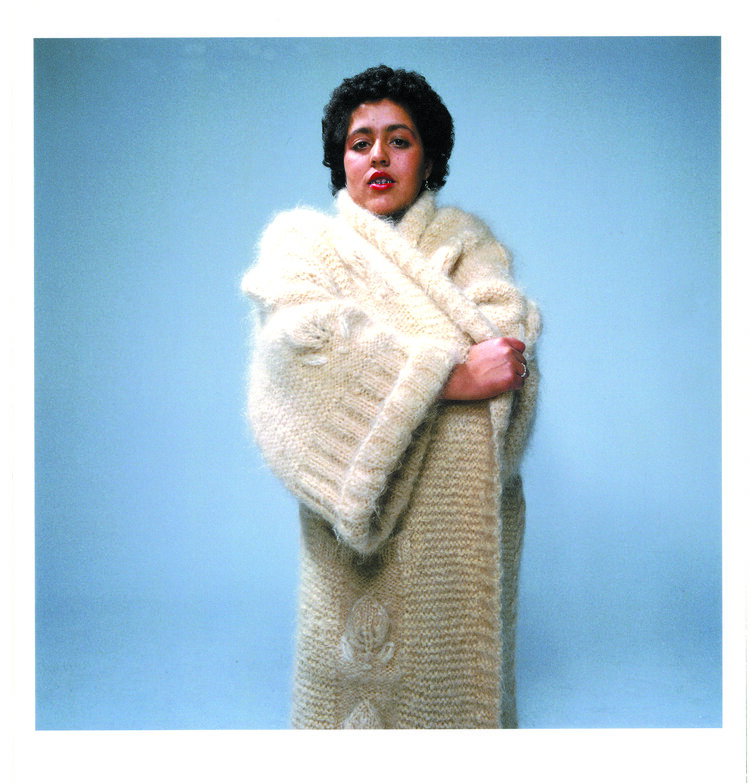There’s a lot going on at Indie Memphis on Sunday. There’s George Tiller’s documentary about Memphians who made it to the NFL, The Lucky Eleven; Tilda Swinton in the mesmerizing Memoria; a program of Hometowner narrative short films, the acclaimed animated documentary Flee, and Melvin Van Peebles’ groundbreaking Sweet Sweetback’s Baadasssss Song.
One of the most emotionally affecting offerings of the festival comes from an unexpected place: a punk rock documentary. Celeste Bell, who co-directed Poly Styrene: I Am A Cliché with Paul Sng, knows her subject very well, because Marianne Joan Elliot-Said, aka punk goddess Poly Styrene, was her mother. “I think making the film and writing the book [Day Glo: The Poly Styrene Story] has definitely been cathartic. It’s kind of a form of therapy, in a sense.”
Poly Styrene was one of the “Bromley Contingent,” the original British punks who were galvanized by The Ramones’ visit to London’s Roundhouse on July 4, 1976, and the frontwoman for X-Ray Spex. She was a mixed-race teenager who didn’t feel accepted by either group, and only found solace in the new music. She was also, as Bell’s doc attests, one of the deepest thinkers and best writers of the first wave. “In terms of women in punk, she was doing something that very few women were doing, especially with her voice,” says Bell. “There weren’t really any women at the time using their voice in that way, singing in that kind of quite aggressive style. Then of course her lyrics really stood out from her contemporaries. The expectation has always been that women tend to write about romance and love and heartache and all of those things, which are great subjects for songs. But my mother actually made a conscious effort not to write about those on Germ Free Adolescents. There’s maybe one song, “Obsessed With You,” you could say is about relationships, but other than that, every song is about social issues. I think that really set her apart from not just other females in punk, but from most of the other punk bands.”
After The Sex Pistols flamed out, the UK anointed X-Ray Spex as the new voice of the nation’s youth. Poly Styrene became a fixture in the English media, and the band traveled to New York City, where their stand at CBGBs became the stuff of music legend. “In the 1970s, the UK was a very different place than the U.S.,” says Bell. “The UK was a fading empire in a deep depressive situation, economically. New York kind of was as well, but I think what my mum was faced with was the future: hyper-capitalism, hyper-consumerism, and hyper technological progress. These were things she was actually writing about, but it wasn’t until she was there, that she was actually like, ‘Oh my God, everything is so much more intense than I had imagined!’ And I think that was quite difficult for her, and overwhelming. But it was also a moment of awakening in terms of her music and her writings.”
In I Am A Cliché, the climax of X-Ray Spex career comes in front of 80,000 people at London’s Rock Against Racism concert in Victoria Park. In the middle of the X-Ray Spex set, Poly Styrene removed her headscarf to reveal she had shaved her head, a provocative gesture aimed at the Nazis who had appropriated the music and the look, and reclaiming it for the diverse working class audience. “The early skinheads were really influenced by Motown on one hand, and reggae and ska music, Jamaican music. So it was actually very influenced by black culture. And you had, you know, white, white skinheads and you had black skinheads and mixed race skinheads, like my mother.”
At the height of her fame, Poly Styrene was stricken with severe mental illness, and dropped out of the scene to join the Hare Krishnas. “I think maybe if she had a drug problem or an alcohol problem, that would have been more acceptable, because that’s rock and roll. What she had was a very severe form of bipolar disorder. When she was going through an episode, her behavior would be considered just totally insane — real insanity, you know, not rock and roll insanity.”
Bell’s film tells the parallel stories of Poly Styrene’s life and Bell’s struggles to understand and accept a mother who was not there for her growing up. “It’s not really a music documentary,” says Bell. “It is a documentary that has music in it, and it’s about a musician, but it’s more of a personal story, a relationship story, something that people can relate to who are not necessarily fans of the music.”
